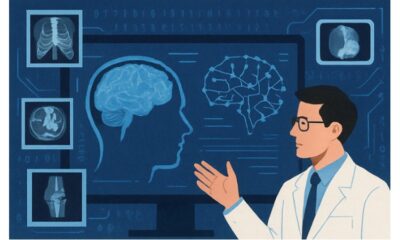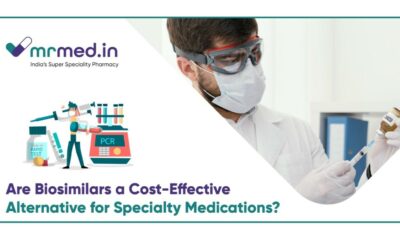Health
5 Things Everyone Going Into a Health Career Should Have

Are you considering a career in healthcare? Whether you’re just starting your journey or looking to advance in the field, there are essential tools and qualifications you’ll need to succeed. Before diving into this dynamic field, take a moment to reflect on your motivations and interests. That knowledge is valuable as you explore various healthcare specialties and career paths to discover where your passion and skills intersect. From practical skills to professional certifications, here are five things every aspiring healthcare professional should have.
1. A Passion for Helping Others
At the heart of every healthcare career is a genuine desire to make a positive impact on people’s lives. Whether you’re a nurse, doctor, therapist, or technician, empathy and compassion are essential qualities for providing quality patient care. Cultivate your passion for helping others by volunteering in healthcare settings, joining community service projects, or simply lending a helping hand to those in need. Remember, the most successful healthcare professionals are those who genuinely care about the well-being of their patients. Additionally, actively seek out opportunities to listen to patients’ stories and understand their unique needs, fostering a deeper connection and trust.
2. Strong Communication Skills
Effective communication is crucial in healthcare settings, where clear and accurate information can mean the difference between life and death. As a healthcare professional, you’ll need to communicate with patients, their families, colleagues, and other members of the healthcare team. Develop strong verbal and written communication skills by practicing active listening, asking clarifying questions, and expressing empathy and understanding. Remember to communicate complex medical information in a way that patients can understand, ensuring they are well-informed and empowered to make decisions about their care. Additionally, hone your nonverbal communication skills, such as maintaining eye contact and using open body language, to convey empathy and build rapport with patients.
3. Relevant Education and Training
A solid educational foundation is essential for pursuing a career in healthcare. Depending on your chosen field, you may need a bachelor’s degree or associate degree as well as additional specialized training, such as a BLS certification. Research educational programs that align with your career goals and interests, and consider factors like accreditation, curriculum, and clinical experience opportunities. Additionally, ongoing training and professional development are essential for staying current with advances in healthcare practices and technologies. Pursue continuing education opportunities, attend conferences, and seek out mentorship from experienced professionals in your field. Investing in your education and training is an investment in your future success as a healthcare professional.
4. Technical Proficiency
In today’s healthcare landscape, proficiency with technology is increasingly important. Familiarize yourself with electronic health records (EHR) systems, medical billing software, telemedicine platforms, and other tools commonly used in healthcare settings. Stay updated on industry trends and advancements in healthcare technology, and be willing to adapt to new systems and protocols as they emerge. Additionally, consider obtaining certifications in specialized areas like medical coding, healthcare informatics, or healthcare IT to enhance your technical skills and marketability. Embrace opportunities to learn new technologies and software, staying proactive in expanding your technical proficiency to meet the evolving needs of the healthcare industry.
5. Commitment to Lifelong Learning
The field of healthcare is constantly evolving, with new research, treatments, and technologies emerging regularly. To thrive in a healthcare career, you must be committed to lifelong learning and professional growth. Stay curious and open-minded, seeking out opportunities to expand your knowledge and skills through coursework, workshops, seminars, and self-study. Pursue advanced certifications or degrees to deepen your expertise in a specific area of healthcare, and consider joining professional organizations or networks to connect with peers and mentors in your field. Staying up-to-date with the latest advancements enhances your skills so you can provide the best possible care to your patients, making a meaningful difference in their lives.
Conclusion
Embarking on a career in healthcare is both rewarding and challenging. By cultivating essential qualities like compassion, communication skills, and technical proficiency, and pursuing relevant education and training, you can position yourself for success in the dynamic and fulfilling field of healthcare. Obtaining certification is a fundamental step in ensuring you’re prepared to respond effectively to medical emergencies and provide life-saving care when it’s needed most. So, equip yourself with the tools and qualifications you need, and embark on your journey to making a difference in the lives of others through a rewarding career in healthcare.
-

 Sports4 weeks ago
Sports4 weeks agoFIFA Club World Cup 2025: Complete List of Qualified Teams and Groups
-

 Sports3 weeks ago
Sports3 weeks agoAl Ahly vs Inter Miami, 2025 FIFA Club World Cup – Preview, Prediction, Predicted Lineups and How to Watch
-
Health1 week ago
Back to Roots: Ayurveda Offers Natural Cure for Common Hair Woes
-

 Tech2 weeks ago
Tech2 weeks agoFrom Soil to Silicon: The Rise of Agriculture AI and Drone Innovations in 2025
-

 Sports3 weeks ago
Sports3 weeks agoFIVB Men’s Volleyball Nations League 2025: Full Schedule, Fixtures, Format, Teams, Pools and How to Watch
-

 Startup3 weeks ago
Startup3 weeks agoHow Instagram Is Driving Global Social Media Marketing Trends
-

 Television4 weeks ago
Television4 weeks agoTribeca Festival 2025: Date, Time, Lineups, Performances, Tickets and How to Watch
-

 Sports3 weeks ago
Sports3 weeks agoWorld Judo Championships 2025: Full Schedule, Date, Time, Key Athletes and How to Watch























